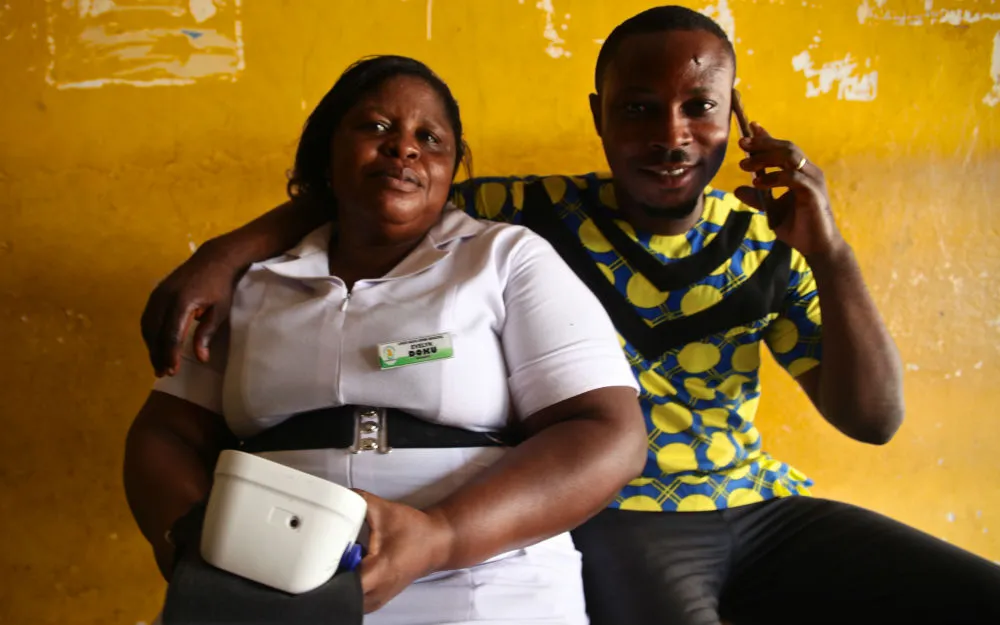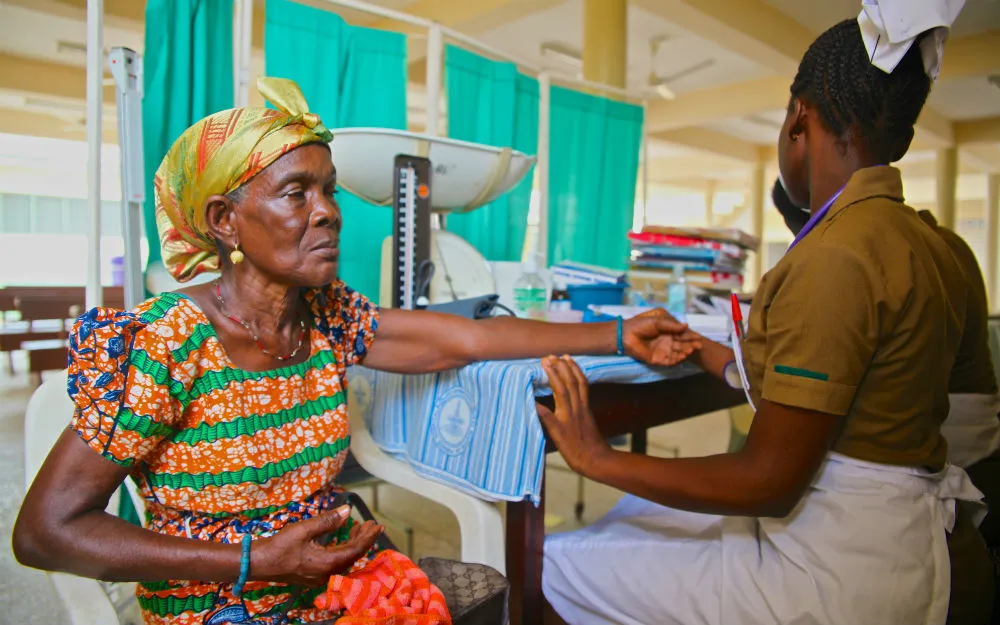Every year, over 10 million people around the world die of hypertension – a condition often referred to as the “silent killer” because of its lack of symptoms. When left unaddressed, it can lead to heart disease, stroke or kidney failure.
Hypertension control rates vary significantly between countries. For example, in Ghana, just 4%1 of people with dangerously high blood pressure have their condition controlled, compared to 53%2 in the US.
The rise of noncommunicable diseases (NCDs) like hypertension is especially challenging for low- and middle-income countries, where many healthcare systems are overstretched and often set up primarily to fight infectious diseases.

In 2015, the Novartis Foundation and partners launched an innovative approach to managing hypertension in a peri-urban region of Ghana. Working with the Ghana Health Service, the London School of Hygiene & Tropical Medicine, and FHI 360, the community-based hypertension management project (ComHIP) tested a new model to detect, diagnose and treat hypertension as early as possible by enabling local shops and businesses to offer blood pressure screening.

Digital technology connected people who screened positive for hypertension at the new screening points with healthcare workers. SMS messages helped patients adhere to medication, diet and exercise regimens – ultimately saving lives.
This demonstrates how simple digital health tools that use existing technology can make an enormous difference to people’s health.

The ComHIP results show how successfully community-based care can address chronic conditions like hypertension. For people enrolled in the program for over a year, average hypertension control rates rose from 36% to 71%, with an average reduction of 12 mm Hg in systolic blood pressure and 7 mm Hg in diastolic blood pressure.
ComHIP made it easier for patients to access care, removing the need to travel to hospitals or clinics. This saves time and money for patients, and reduces pressure on overstretched healthcare systems.

The ComHIP results demonstrate the huge potential of community-based care and suggest that this method of bringing care closer to where people live, work and shop could save millions of lives if replicated in other countries and for other NCDs.

Learn how community-based care can address chronic conditions like #hypertension.


